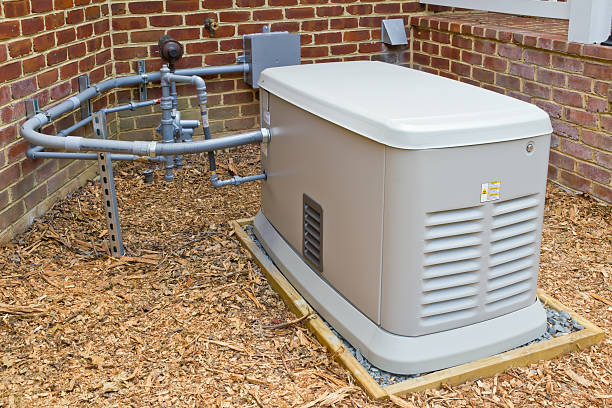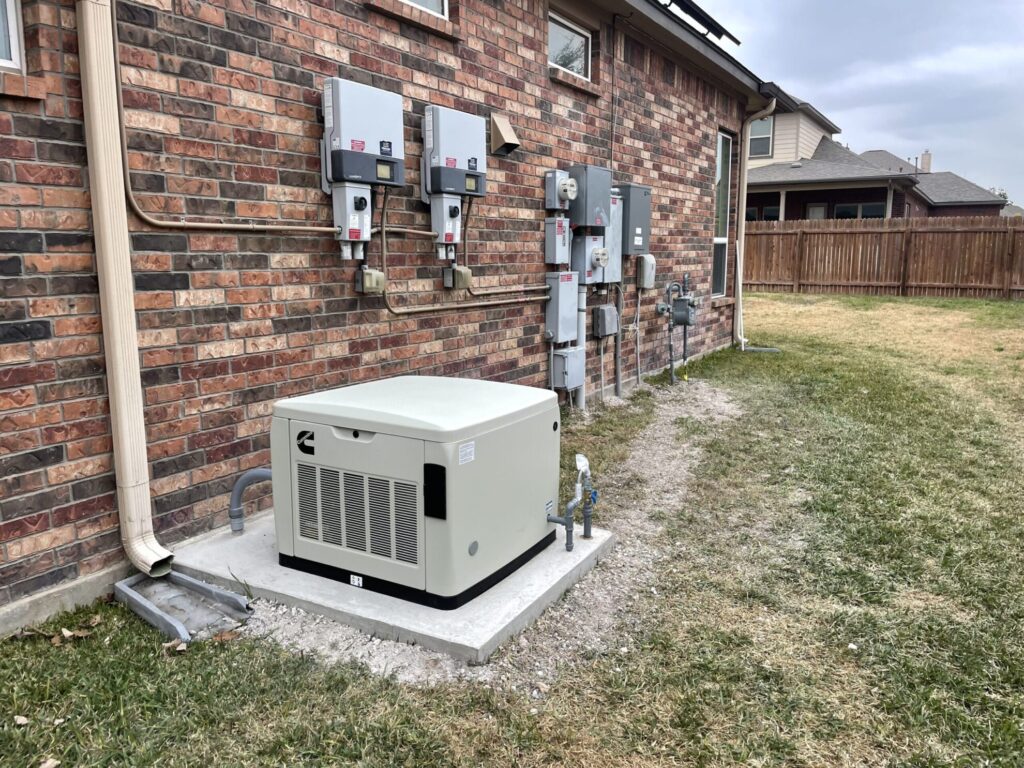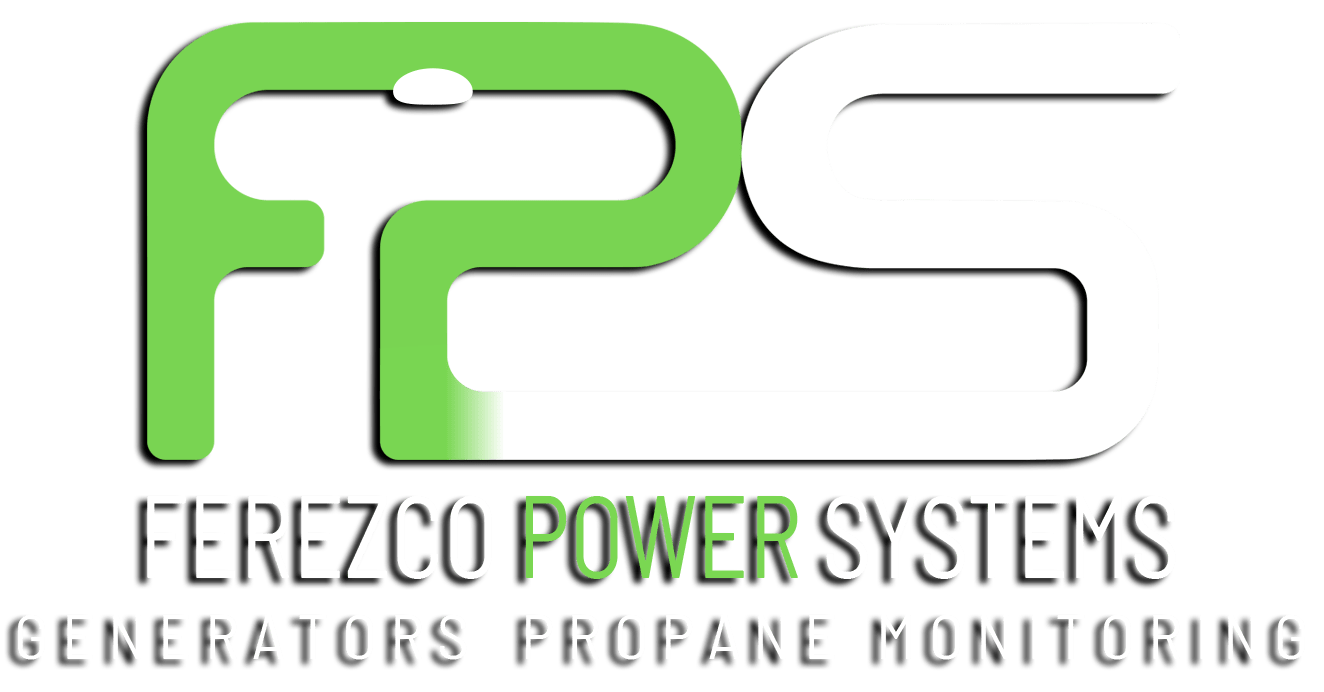When the power goes out, a generator can be a real lifesaver, especially in our homes. But buying a generator is not just about picking any model off the shelf. The key question is, How big a generator do you need to keep your house running smoothly during a power cut? Choosing the right size generator for your home ensures that all your essential appliances, like lights, fans, and fridges, keep working without any hitches.
This article will help you figure out the perfect generator size for your home, keeping things simple and straight to the point. Whether it’s a big house or a small one, we’ll guide you through finding a generator that fits just right, making sure you’re never left in the dark.
What Generator Capacity Means and How It’s Measured (in Watts)

Generator capacity refers to the amount of power a generator can provide. This is importantl because it determines how many appliances and devices you can run simultaneously during a power outage. The capacity of a generator is measured in watts, which is a unit of power.
For instance, a generator with a capacity of 2000 watts can supply enough electricity to operate multiple household items together, such as lights, fans, and a refrigerator. However, it’s important to remember that many appliances require more power to start than to keep running, known as starting watts versus running watts.
When you choose a generator for your home, consider both the running watts and the extra power needed for starting appliances. This ensures that the generator can handle the initial surge required by some devices without overloading. Always select a generator with a capacity that exceeds your estimated total wattage to have a reliable power source during emergencies.
Assessing Your Home’s Power Needs
Before buying a generator, the first step is to figure out how much power your home actually needs. This is important because if your generator is too small, it won’t be able to keep your essential appliances running during a power cut. On the other hand, a generator that’s too big could be a waste of money and fuel.
Start by making a list of all the things in your house that you would need to use when there’s no electricity. Common items include the fridge, lights, water pump, fan, and perhaps your computer or TV. Next to each item on your list, write down how much power it uses in watts. You can usually find this information on a label on the appliance or in the manual.
Add up all these numbers to get a total. This total tells you how many watts your generator needs to produce to keep everything running. However, remember that some appliances need a bit more power when they start up. So, it’s safe to choose a generator that can produce a bit more power than your total calculation.
The right size generator means you can keep your home comfortable and your appliances safe during power outages. It’s a balance between not spending too much on a bigger generator than you need and making sure you have enough power for the essentials.
Read Also: Top 10 Colors of Electrical Wires: The Basics
Types of Generators
Each generator type has unique features and benefits, making it suitable for certain needs and homes. Let’s explore the main types of generators you can consider to keep your house powered during outages
- Portable Generators: Portable generators are the most common choice for temporary power solutions. They are lightweight, easy to move around, and ideal for homes that experience shorter or less frequent power cuts. These generators usually run on petrol or diesel and can power essential items like lights, fans, and fridges. However, they need to be operated outdoors due to the risk of carbon monoxide poisoning from the exhaust.
- Inverter Generators: Inverter generators are a more modern solution. They are similar to portable generators but are designed to produce cleaner energy that is safer for powering sensitive electronic devices like laptops, smartphones, and medical equipment. These generators adjust the electrical output to match the demand, making them more fuel-efficient and quieter than standard portable models.
- Standby Generators: Standby generators are installed permanently near a home and start automatically during a power outage. They are more powerful and can run on natural gas or propane, which is convenient if you already use these fuels in your home. Standby generators can handle higher power loads, capable of running the entire house, including air conditioners and heating systems, making them ideal for areas with frequent or long-lasting power outages.
Choosing the Right Type:
- For occasional use and smaller power needs: Portable generators are cost-effective and straightforward.
- For homes with sensitive electronics and moderate use: Inverter generators offer efficiency and cleaner power.
- For comprehensive home power solutions and frequent outages: Standby generators provide convenience and peace of mind with automatic operation and the ability to power all household appliances.
Factors to Consider When Choosing a Generator
Extended power cuts can really disrupt our daily life, spoiling food in the fridge, stopping us from charging devices, and even risking damage from frozen pipes or moldy walls. That’s why having a reliable backup generator is crucial, especially for those who rely on medical equipment or have livestock. Here are some key factors to keep in mind when choosing the right generator for your home.
1. Power Requirements
First things first, know how much power you actually need. Calculate the total wattage of the appliances and devices you can’t do without during a power cut. This includes your fridge, water pump, lights, and any medical equipment that must stay on. Make sure the generator you choose can handle this load with a little extra to spare, which helps in the smooth operation of all your appliances.
2. Fuel Type
Generators run on various fuels such as petrol, diesel, propane, or natural gas. Each fuel type has its pros and cons. Petrol generators are common but require frequent refueling. Diesel generators are more fuel-efficient but typically louder. Propane and natural gas generators burn cleaner and can be connected to your home’s existing gas line, which is very convenient. Your choice will depend on availability, cost, and personal preference.
3. Noise Levels
If you live in a community with close neighbors or noise regulations, consider a generator that operates quietly. Inverter generators are known for being quieter than standard models, which is a huge plus if noise is a concern.
4. Portability
Do you need a generator that can be moved around easily? Portable generators are ideal for homes that don’t require constant power but need an emergency backup occasionally. On the other hand, if you experience frequent power outages, a standby generator, which is installed permanently, might be a better choice despite being more expensive.
5. Durability and Maintenance
Look for generators made from high-quality materials that can withstand local weather conditions, especially if it will be placed outdoors. Additionally, consider the maintenance schedule and ease of service. Some generators require more frequent checks and servicing, which can add to the overall cost of owning one.
6. Safety Features
Never compromise on safety. Opt for a generator with built-in safety features such as overload protection, automatic shutoff in case of oil or fuel shortages, and carbon monoxide detectors, especially if the generator will operate near your living areas.
7. Budget
Finally, consider your budget. It’s important to find a balance between what you can afford and the quality of the generator. Remember, buying the cheapest option might cost more in the long run due to higher fuel consumption, maintenance costs, or replacement expenses.
What Size Of Generator Is Required to Run a House?

Determining the right size of a generator to effectively power your house during an outage involves assessing your specific power needs. Generally, for a typical home, a generator capable of providing between 5,000 and 8,000 watts will be sufficient to handle most of your essential needs.
With a generator in this range, you can expect to keep critical appliances and systems running. For instance, this size of generator can support:
Here are some common household appliances and their approximate wattage requirements:
- Refrigerator: 600 watts
- Sump pump: 750 watts
- Portable heater: 1,500 watts
- Window air conditioner: 1,000 watts
- Lights: 60-600 watts (depending on type and number)
Choosing a generator with a capacity of 5,000 to 8,000 watts ensures that you can manage these appliances without overloading the system. It’s important to consider both the running watts and the starting watts (which are typically higher) of your essential appliances when selecting your generator. This precaution helps you avoid shortfalls in power during critical times, ensuring your home runs smoothly until the power comes back on.
Importance of Installing the Correct Size Generator
Installing a generator that perfectly matches your home’s needs can save you a lot of stress and expense. Here’s why the correct size is so crucial:
1. Avoid Overloading
A generator too small for your house won’t be able to handle all your appliances. This can lead to overload, where the generator tries to deliver more power than it can handle, potentially causing it to break down or, worse, damage your electrical equipment. On the flip side, a generator that’s too large can lead to unnecessary fuel consumption and increased operational costs.
2. Efficient Energy Use
The right-size generator runs more efficiently. It uses just enough fuel to power your essentials without wasting energy. This efficiency not only saves on fuel costs but also reduces wear and tear, extending the lifespan of the generator.
3. Cost-Effective
While a larger generator might seem like a safe bet, it’s more expensive to purchase and operate. You end up paying more upfront and in ongoing fuel costs. A generator that’s correctly sized for your needs will be more economical in the long run.
4. Safety and Comfort
An adequately sized generator ensures that all your critical appliances, like refrigerators, heating systems, and medical equipment, keep running smoothly during an outage. This provides comfort and safety for your family, especially during extended periods without electricity.
5. Compliance and Warranty
Using a generator that aligns with the manufacturer’s specifications ensures you remain within warranty guidelines. This is important for maintenance and any service claims, keeping you covered under warranty conditions without unexpected costs.
House Generator Installation and Repair Services in San Antonio, Texas
If you live in San Antonio and are thinking about a generator for your home, you’ve got plenty of options with Ferezco Power System. We provide comprehensive generator services to ensure your home stays powered without interruption. Our offerings include automatic transfer switch installation, which ensures your generator kicks in the moment there’s a power cut. We also specialize in generator maintenance and diesel generator repair to keep your system running smoothly.
In addition, our expert team conducts generator load bank testing, commissioning, and consulting services to help you choose and maintain the best generator for your home’s specific needs. We understand the importance of reliable power, which is why we also offer generator monitoring services and propane services to cater to all types of generators. Whether you need a new installation or just routine upkeep, our experienced technicians are here to help. Trust Ferezcopower.com for all your generator needs in San Antonio, ensuring your home remains comfortable and secure, no matter the weather.



